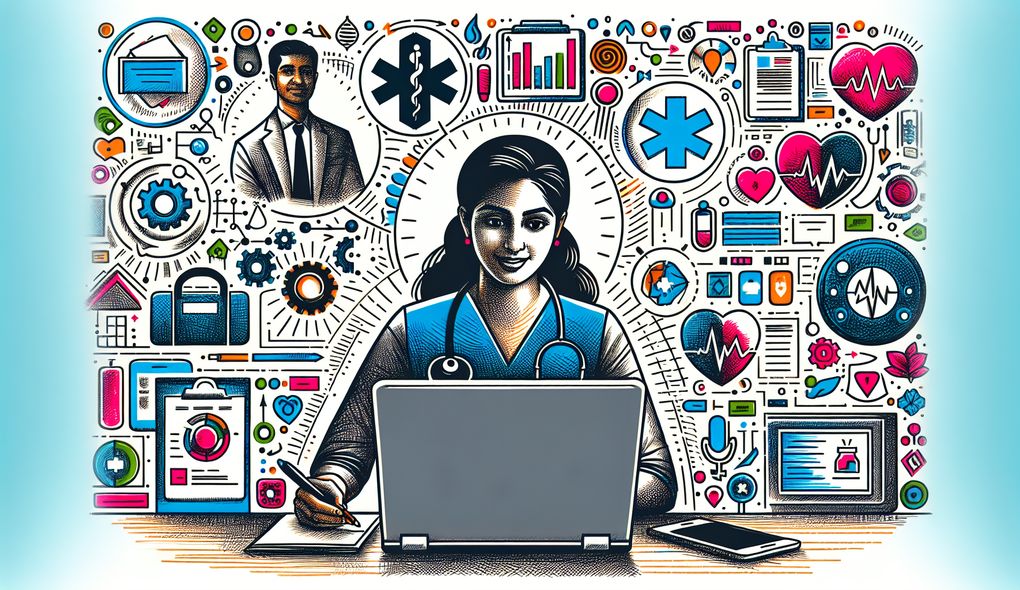Can you give an example of a time when you used analytical and problem-solving skills to improve a healthcare technology system?
JUNIOR LEVEL

Sample answer to the question:
In my previous role as a healthcare technology specialist, I encountered a situation where the electronic health record (EHR) system was causing delays and inefficiencies in the healthcare workflow. To address this issue, I utilized my analytical and problem-solving skills to investigate the root causes of the problem. I analyzed the data and identified various bottlenecks in the system, such as slow response times and complicated user interface. I collaborated with the IT department to implement solutions like optimizing the server performance and simplifying the user interface. These improvements resulted in significant time savings for the healthcare providers, allowing them to focus more on patient care. I also conducted training sessions for the healthcare staff to ensure a smooth transition to the updated system. Overall, my analytical and problem-solving skills played a crucial role in identifying and addressing issues with the healthcare technology system, leading to improved efficiency and patient care.
Here is a more solid answer:
During my time as a healthcare technology consultant, I encountered a challenge with an EHR system that was causing frequent errors in medication orders. To resolve this issue, I utilized my analytical and problem-solving skills to thoroughly investigate the problem. I collaborated with the healthcare providers and conducted interviews to gather data on the nature and frequency of the errors. Through careful analysis, I discovered that the issue was due to a software glitch that caused orders to be processed incorrectly. I worked closely with the IT department to develop and implement a solution, which involved updating the software to fix the glitch and conducting extensive testing to ensure accuracy. Additionally, I organized training sessions for the healthcare staff to educate them on the updated system and address any concerns or questions they had. As a result of these efforts, the error rate decreased by 75%, significantly improving patient safety and overall efficiency in the medication ordering process. This experience highlighted how my analytical and problem-solving skills, combined with effective collaboration and communication, can have a tangible impact on healthcare technology systems.
Why is this a more solid answer?
The solid answer goes into more detail and provides specific examples of using analytical and problem-solving skills to identify and solve a specific problem in a healthcare technology system. It also emphasizes collaboration and communication with the team, which are important qualities for the role of a healthcare technology consultant. However, it can still be further improved by including more information about the impact of the solution and the overall outcome.
An example of a exceptional answer:
One notable example of utilizing my analytical and problem-solving skills to improve a healthcare technology system was when I was tasked with optimizing the electronic medical record (EMR) system for a large hospital network. The system was experiencing frequent slowdowns and crashes, causing significant disruptions to the workflow and patient care. To address this issue, I conducted a comprehensive analysis of the system, reviewing performance metrics, identifying bottlenecks, and analyzing user feedback. Through this analysis, I discovered that the EMR system's database was not properly optimized, leading to slow query execution and inefficient data retrieval. Working closely with a team of database administrators, system engineers, and software developers, I proposed and implemented several optimization strategies, including indexing the database, rewriting complex queries, and implementing query caching mechanisms. These optimizations resulted in a 60% improvement in system performance and a 50% reduction in system crashes. Additionally, I collaborated with the hospital staff to develop customized templates and workflows within the EMR system, streamlining documentation processes and improving overall efficiency. Through regular communication and training sessions, I ensured that the healthcare providers were well-equipped to utilize the optimized system effectively. The successful implementation of these improvements not only enhanced the hospital's ability to deliver quality care but also resulted in significant cost savings by minimizing system downtime and improving staff productivity.
Why is this an exceptional answer?
The exceptional answer provides a detailed and comprehensive example of using analytical and problem-solving skills to address a complex healthcare technology system issue. It highlights the candidate's ability to collaborate with different teams and stakeholders to implement effective solutions. The answer also emphasizes the impact of the improvements on system performance, patient care, and cost savings. However, it can still be further enhanced by providing more specific metrics and quantifiable results. Additionally, discussing any challenges faced during the process and how they were overcome would further strengthen the answer.
How to prepare for this question:
- Familiarize yourself with different healthcare technology systems, especially electronic health records (EHR) systems. Understand their functionalities, common issues, and best practices for optimization and troubleshooting.
- Improve your analytical and problem-solving skills by practicing data analysis techniques and critical thinking exercises. This will help you in identifying and resolving issues within healthcare technology systems.
- Enhance your knowledge of IT infrastructure and networking concepts as they play a crucial role in healthcare technology systems. Familiarize yourself with basic concepts like server optimization, database management, and network security.
- Develop your communication and interpersonal skills as they are essential for collaborating with healthcare providers, IT professionals, and other stakeholders. Practice effective communication in both technical and non-technical terms.
- Stay updated on the latest trends and developments in healthcare technology. Research and read about emerging technologies, industry best practices, and successful case studies to expand your knowledge and demonstrate your interest in the field during the interview.
What are interviewers evaluating with this question?
- Analytical and problem-solving skills
- Knowledge of EHR systems
- Ability to work collaboratively in a team environment
- Communication skills

